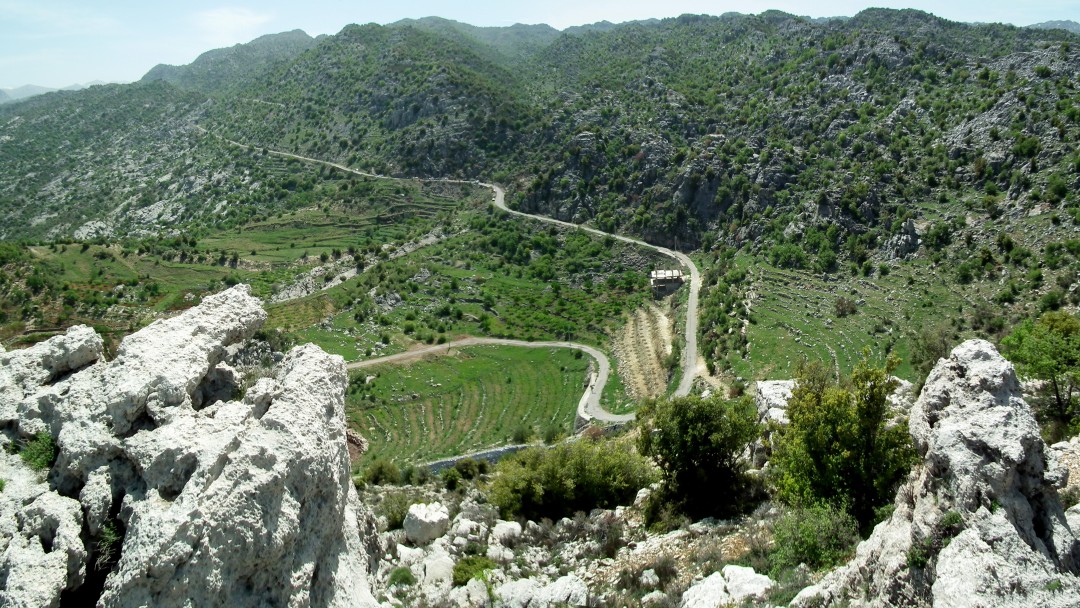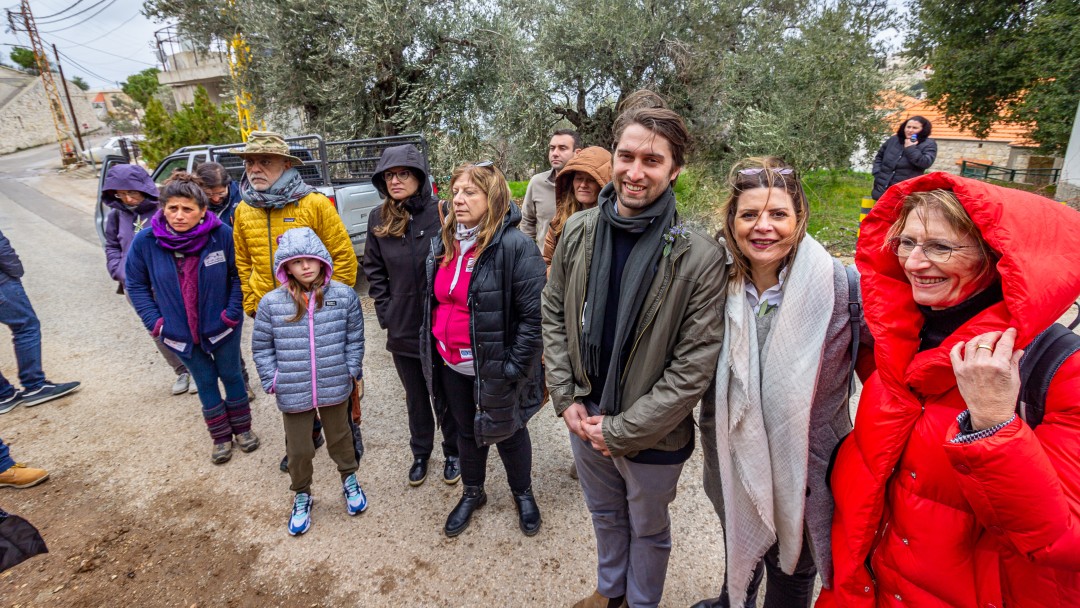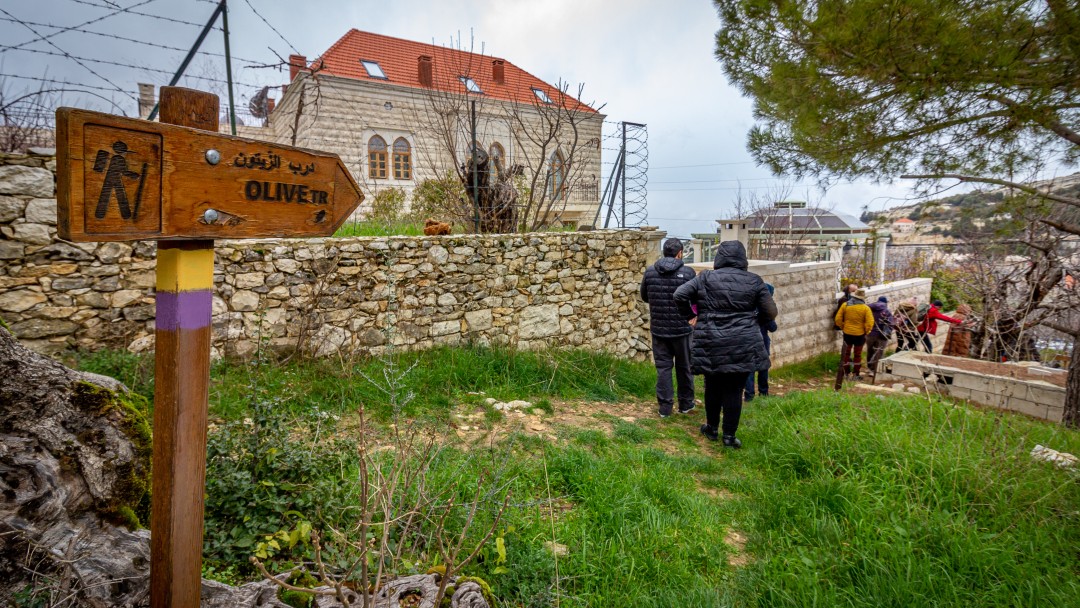News from 2023-01-23 / KfW Development Bank
Long-distance hiking trail in Lebanon rehabilitated - a benefit for tourism, the economy, and the environment
A German-funded project by the International Labour Organization (ILO) and the Lebanon Mountain Trail Association (LMTA) to rehabilitate and maintain Lebanon's longest hiking trail and develop new secondary routes has now been ceremonially completed.

The beginnings of the 590 km Lebanon Mountain Trail (LMT) date back to 2007: today, the trail crosses 140 villages and towns along the Lebanon Mountains from the north of the country to Marjaayoun in the south. At an altitude of 570 to 2,073 metres above sea level, hikers enjoy spectacular views, cultural heritage sites and bird sanctuaries. The trail is popular with tourists for whom sustainable travel is important in addition to impressive landscapes - the residents who provide accommodation and catering also notice this. That is why twenty more communities have asked to connect the main trail with their villages through new side trails. Four of these additional byways have now been inaugurated.

The ceremony took place near a newly developed byway at Batroun to mark the completion of rehabilitation works along the entire length of the LMT. The new "olive path" is part of this project, which is financed by the German government through KfW Development Bank and implemented by the ILO and the LMTA. The opening makes it clear that German-Lebanese cooperation is also united by a passion for hiking.

Lebanon is in a deep crisis. Consequently, tourism has become an even more important economic factor, especially for rural areas. Economic opportunities for the LMT's riparian communities will be enhanced by promoting socially responsible tourism that protects the region's natural, cultural and historical heritage.
The project is part of the ILO's Employment Intensive Infrastructure Programme (EIIP) in Lebanon, which aims to create decent jobs for Lebanese and Syrians in the short term through projects that create assets, renovate and rehabilitate infrastructure systems and promote environmental sustainability throughout the country.
EIIP projects use labour-intensive and local resources - from manpower to raw and auxiliary materials. Around 1,350 skilled and unskilled local workers (men and women, including people with disabilities) are employed under the project for a total of 58,120 working days. The project also provides capacity building support to beneficiaries for trail management and maintenance, and empowers local key actors or LMT leaders for more sustainable outcomes. In addition, the project provides opportunities for indirect beneficiaries such as local LMT leaders, owners of guest houses, owners of rented premises for training, owners of warehouses for material storage (about three warehouses in each of the four regions), communities, owners of tools and equipment shops, local producers of refreshments and snacks for workers, etc.
KfW Office Director Dr Solveig Buhl said during the ceremony on 17 January: "Today we celebrated the inauguration of a representative section of the newly rehabilitated 590 km Lebanon Mountain Trail in Bchaaleh. We hope that the LMT will bring people together and promote sustainable development. Our thanks go to all the men and women involved in the rehabilitation and to the participating communities across Lebanon."

Share page
To share the content of this page with your network, click on one of the icons below.
Note on data protection: When you share content, your personal data is transferred to the selected network.
Data protection
Alternatively, you can also copy the short link: https://www.kfw-entwicklungsbank.de/s/enzBWrMC.C15A
Copy link Link copied